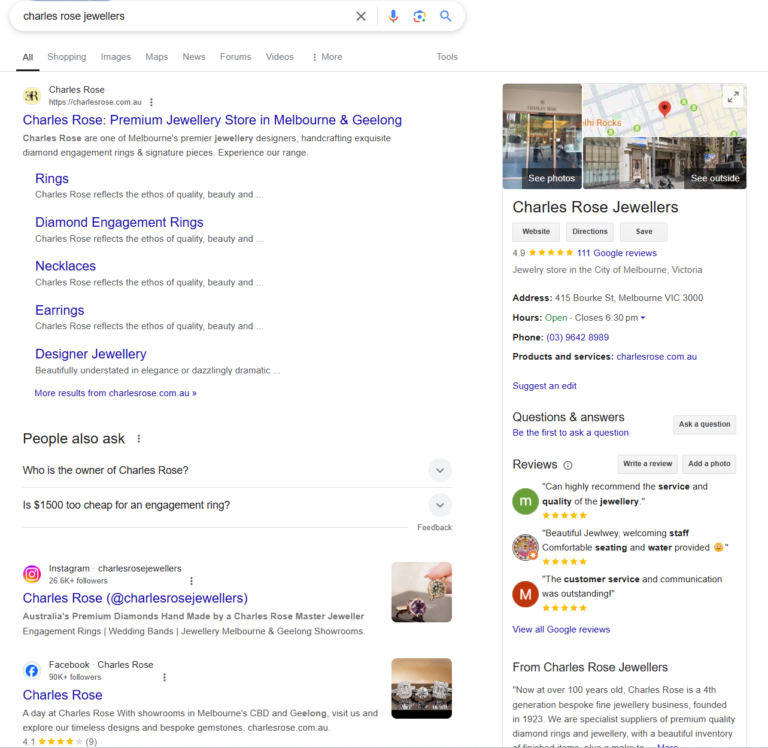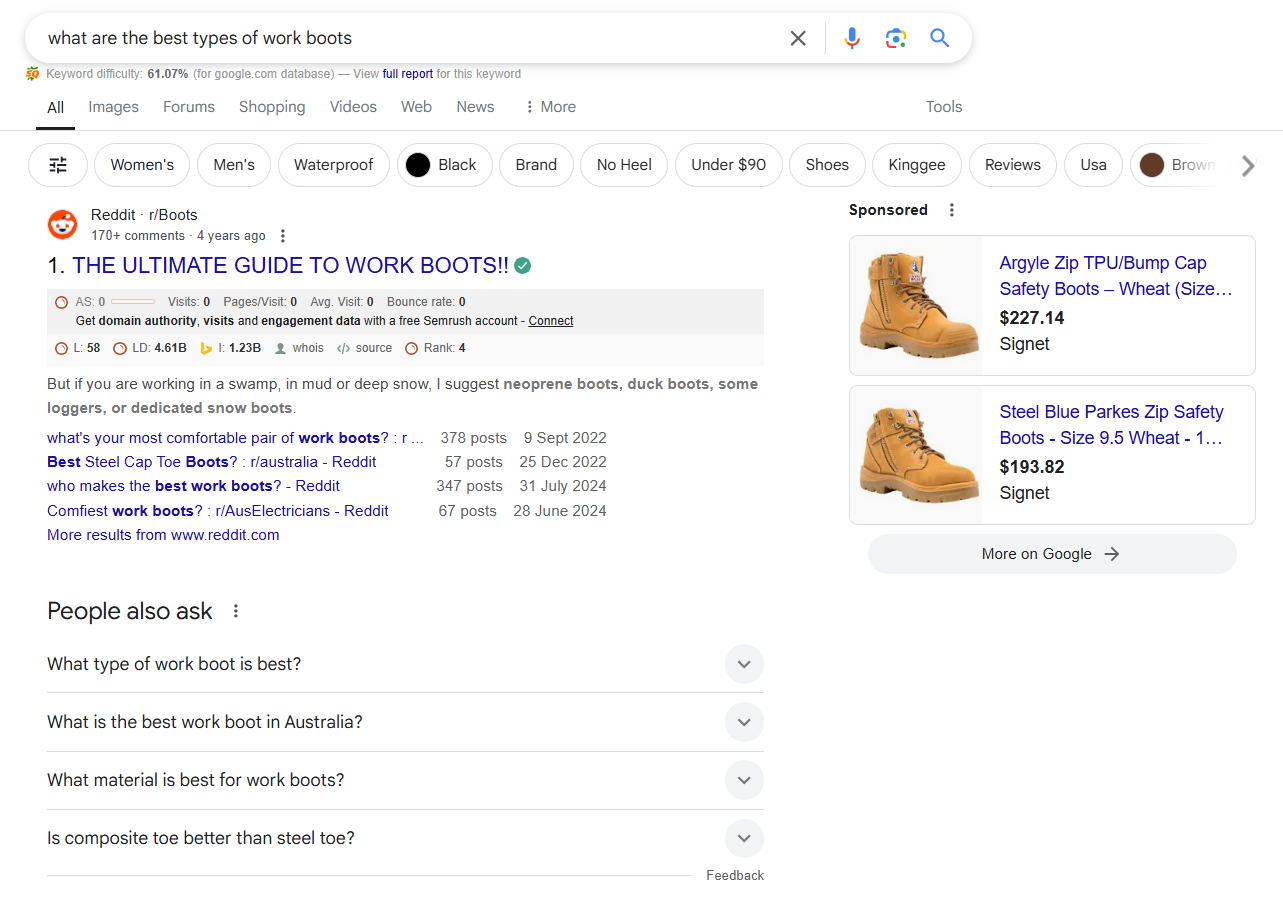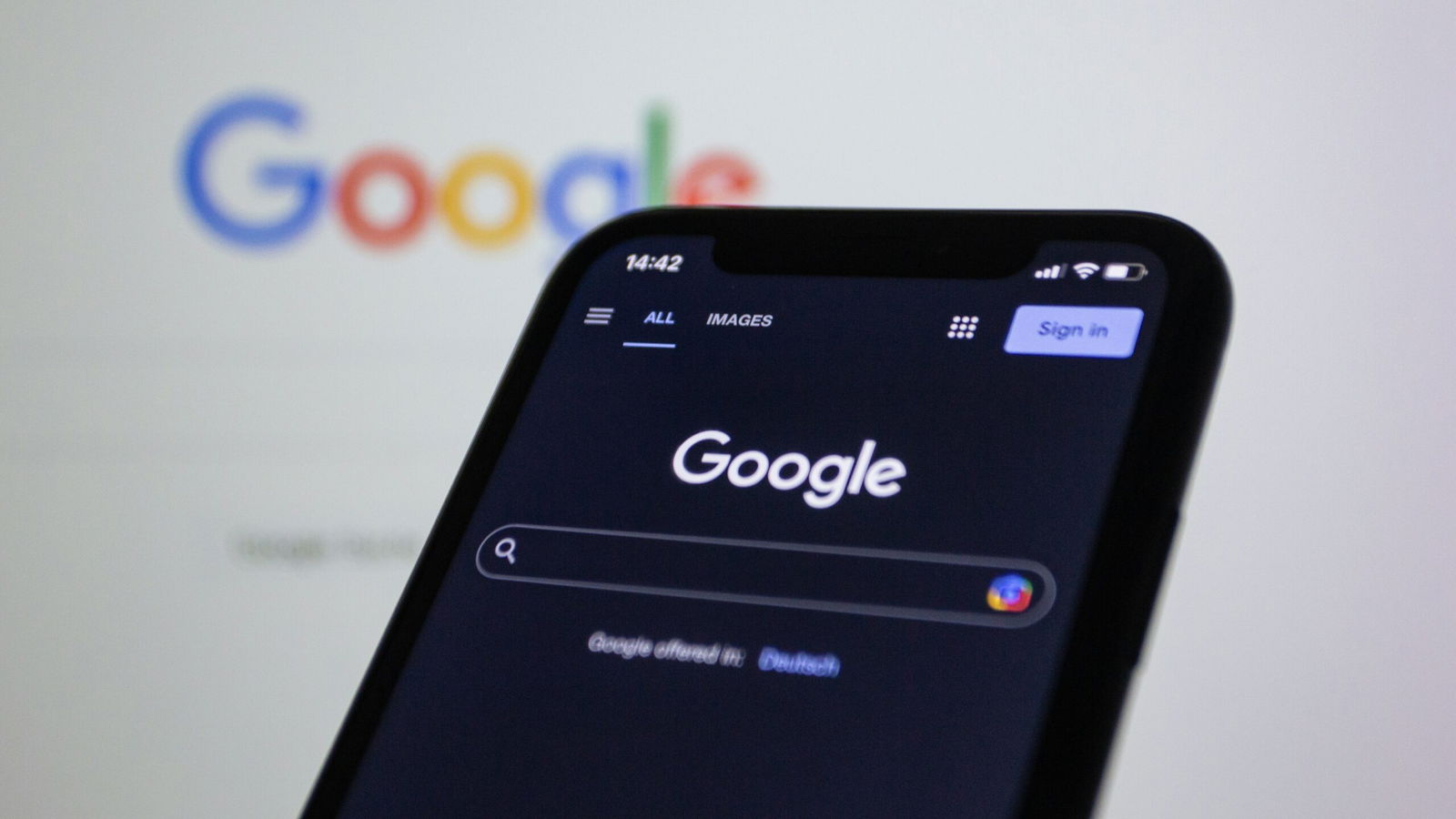Social media has evolved far beyond its original purpose of connecting friends and sharing updates. Today, platforms like Instagram, TikTok and Facebook, serve as search engines in their own right. Consumers now use social media to discover brands, research products, and find answers to their questions, shifting how businesses approach search engine optimisation (SEO). We even see social media platforms consistently rank well in Google search results – most often being Facebook (particularly for local businesses) and Reddit.
The movement towards using social media in this way is particularly strong among younger generations, with nearly 40% of Gen Z globally using TikTok and Instagram instead of Google Search. In Australia, the number is even higher, with 51% of Gen Z consumers preferring social media for research and discovery.
Unlike traditional SEO, which focuses on ranking websites on Google, social media SEO makes sure content is easily discoverable within social platforms. This includes strategic keyword usage, optimising captions, leveraging hashtags, and increasing engagement to improve search rankings.
If your business is not optimising social content for search, you are likely missing out on meaningful opportunities to reach new audiences. In this guide, we will cover:
- What social media SEO is and why it matters
- How to optimise content for TikTok, Instagram, Facebook
- Best practices to boost organic reach and engagement
- How SEO and paid ads can work together to maximise results
This is not to say that social media SEO should take over your usual strategy, as a multi-faceted strategy is always best. The main idea of adding SEO to your social media strategy is to compliment and round out existing strategies and paid social ads to try and maximise your digital presence.
What is Social Media SEO?
Social media SEO is the practice of optimising content to rank higher in search results within social platforms and by extension, on Google. Unlike traditional SEO, which relies on backlinks and technical optimisations, social SEO focuses on:
- Using relevant keywords in captions, bios, and hashtags
- Adding alt text and descriptive filenames to images
- Encouraging engagement through likes, comments, and shares
- Optimising video content with captions and spoken keywords
Social platforms have their own search engines and algorithms, prioritising content that is well-optimised, engaging, and relevant. Without content that meets these guidelines, optimising for SEO will fall flat as the platform will not push your content in front of the right people in the first place.
Social Media SEO vs. Traditional SEO
Feature | Social SEO | Traditional SEO |
Ranking focus | Search within social platforms | Google search results (SERPs) |
Keywords | Captions, bios, hashtags | Blog content, meta titles, alt text |
Content format | Short videos, Reels, posts | Long-form blogs, landing pages |
Performance signals | Engagement (likes, shares, comments) | Backlinks, site traffic, click-through rates |
While social signals (likes, shares, comments) do not directly impact Google rankings, they increase brand visibility, drive traffic, and improve website authority, which can indirectly boost search rankings.

Why Social Media SEO Matters
We know that social media itself is a big world of “keep up or get left behind” and its professional applications are no different. Social SEO is becoming a necessity for businesses, particularly in ecommerce and retail, as social platforms are now key drivers of product discovery and have even become a viable sales channel (especially when implementing one-click checkout and live shopping).
Global Social Commerce Search Trends
- There are around 5.24 billion social media users worldwide.
- 75% of consumers use social media to research products and brands.
- 14% of all online purchases now take place through social media
- Social commerce is expected to reach $2.9 trillion globally by 2026
- Live shopping is projected to exceed 256 billion US dollars by 2032.
- 43% of Gen Z consumers start their online product searches on TikTok, overtaking Google and Amazon as the starting point for online product searches.
- Social SEO success varies by industry, with fashion, beauty, and tech seeing the highest engagement.
Social SEO can be thought similarly to optimising for long-tail keywords in traditional SEO, the intent and conversion opportunities are strong due to the commercial and transactional nature of the user searching. Ignoring social SEO means missing out on high-intent users actively searching for products and services.
TikTok SEO: How to Optimise for TikTok Search
Why TikTok Matters for SEO
Instagram may be the world’s most downloaded app, but TikTok has the most active users with 67.5% of users using the app every day. It is swiftly becoming a one stop shop for socials, search and shopping. And being one of the fastest growing search engines (particularly for product recommendations and local business discovery), optimising for SEO purposes is becoming a necessity.
TikTok SEO Best Practices
- Use keyword-rich captions. TikTok allows longer captions, so include relevant search terms.
- Say your keywords out loud. TikTok can use voice recognition.
- Add text overlays. Helps TikTok’s algorithm understand your content.
- Optimise hashtags. Combine trending and niche-specific hashtags.
- Engage with comments. Replying boosts visibility in search results.
- Use trending sounds. TikTok prioritises videos with viral audio.
Consider boosting TikTok visibility in tandem with paid ads. Organic SEO takes time, but TikTok Ads can help accelerate reach. Something important to keep in mind is that TikTok prioritises its own ads over third-party input, so it is best to run ads within the platform itself.
Instagram SEO: How to Optimise for Instagram Search and Explore Page

Why Instagram Matters for SEO
Instagram has been one of the most popular social media apps for some time and with it taking greater strides in the last few years to facilitate more eCommerce applications, its ability to be optimised for SEO has also grown. Globally, 70% of shoppers use Instagram to find their next purchase, and this number is only increasing year on year. Instagram is a major player in social commerce, with features like Shopping Tags and Checkout streamlining in-app purchases. These tools make the shopping experience simple and immediate, driving engagement and increasing sales as more consumers shop directly on the platform.
Instagram SEO Best Practices
- Use keywords in your username, bio, and captions.
- Optimise hashtags strategically. Use a maximum of five relevant hashtags. Overuse can lead to shadow banning.
- Use Instagram alt text to improve searchability and accessibility.
- Leverage location tags to rank in Instagram Maps searches.
- Post engaging Reels. Instagram prioritises short-form videos in search rankings.
Organic growth can be slow, so supplement with Instagram Ad campaigns, influencer marketing, PR, and relevant paid boosting strategies.
Facebook SEO: How to Optimise for Facebook Search
Why Facebook Matters for SEO
With 3.07 billion monthly global active users, Facebook remains crucial for business discovery. This is especially important for local SEO as Facebook pages for local businesses frequently rank well in Google search results.
Facebook SEO Best Practices
- Use keywords in page titles, descriptions, and posts.
- Optimise Facebook posts with searchable hashtags and clear calls to action.
- Encourage engagement through shares and comments.
- Add location tags and reviews to improve local search rankings.
When considering paid ads on Facebook, it is important to match your strategy with your overall goals. This could involve running Meta Ads across multiple platforms or focusing solely on Facebook specific campaigns. Facebook Ads can be particularly effective for amplifying organic reach, most notably for local businesses looking to increase visibility and drive engagement.
Reddit SEO: How to Optimise for Reddit Search and Google Rankings

Why Reddit Matters for SEO
Each time you ask Google a question, you can get a wide mix of results. Recently, you may see AI overviews (as they roll out more frequently), a drop down section of “people also ask” and for eCommerce searches, Google shopping options. Reddit threads frequently rank on the first page of Google for product reviews, industry discussions, and niche topics. Users even often add “Reddit” to Google searches to find authentic, community-driven insights.
Reddit is frequently updated, which aligns with Google’s preference for fresh and relevant content. The platform’s high domain authority also makes its pages more likely to rank well in search results. And as Reddit discussions are user-generated and largely unfiltered by brands, they fit Google’s goal of surfacing authentic, user experience based answers.
Reddit SEO Best Practices
- Engage in relevant subreddits. Participate in discussions without direct self-promotion.
- Optimise for search. Use keyword-rich titles and natural language.
- Avoid direct self-promotion; instead, contribute to discussions and establish credibility.
- Leverage Ask Me Anything sessions. Position your brand as an authority.
- Use Reddit Ads. If organic engagement is difficult, consider Reddit’s paid ad platform.
The Power of Social SEO
The data is clear, social media is more than just an engagement platform; it’s a search engine where users actively seek information, brands, and products.
By optimising your content for search, you can:
- Reach high-intent users searching for what you offer
- Improve organic discoverability and engagement
- Drive website traffic and conversions
Social media strategies are no longer just about your brand image or connecting to your community, but how you can maximise your digital presence and get in front of the right people at the right time, to expand your reach and help grow your business. So whether your business is focused on organic growth or paid social ads, integrating social media SEO is essential for staying ahead.
Frequently Asked Questions
Does social media affect Google search rankings?
Social media activity does not directly impact Google search rankings, as Google does not count likes, shares, or followers as ranking factors. However, social media can indirectly improve SEO by increasing brand visibility, driving traffic to your website, and generating backlinks when people share your content on other websites.
How can I find the right keywords for social media SEO?
Just like traditional SEO, keyword research is crucial for social media optimisation. Use tools like:
- TikTok’s search bar to find trending keywords and hashtags
- Instagram’s Explore page to identify popular search terms
- Pinterest Trends to track keyword performance
- Twitter/X trending topics to identify relevant phrases
- Google Trends for cross-platform insights
Using platform-specific keywords improves your chances of appearing in search results.
Which social media platform is best for SEO?
It depends on your business and audience:
- TikTok & Instagram – Best for Gen Z and product discovery
- Facebook – Ideal for local businesses and long-form content
- LinkedIn – Best for B2B marketing and thought leadership
- Pinterest – Great for eCommerce and visual search
- Twitter (X) – Best for real-time engagement and trending topics
Each platform has its own search algorithm, so optimising content for multiple platforms maximises reach.
Can social SEO work without paid ads?
Yes, but it takes time. Organic social SEO relies on consistent content creation, keyword optimisation, and audience engagement. However, combining organic strategies with paid social ads can speed up visibility and engagement, especially on competitive platforms like Instagram and TikTok.
If you’re looking for a faster way to boost discoverability, consider social media ad campaigns to complement your organic efforts.
How often should I update my social media SEO strategy?
Social algorithms and search trends change frequently. It’s best to review and update your strategy every 3-6 months, track which keywords and content formats perform best, and adjust accordingly. Monitoring platform updates and user behaviour is key to staying ahead in social search.
Looking to improve your brand’s social SEO strategy? nimbl offers expert SEO and social ad services to boost visibility, increase engagement, and drive better results across social platforms.






